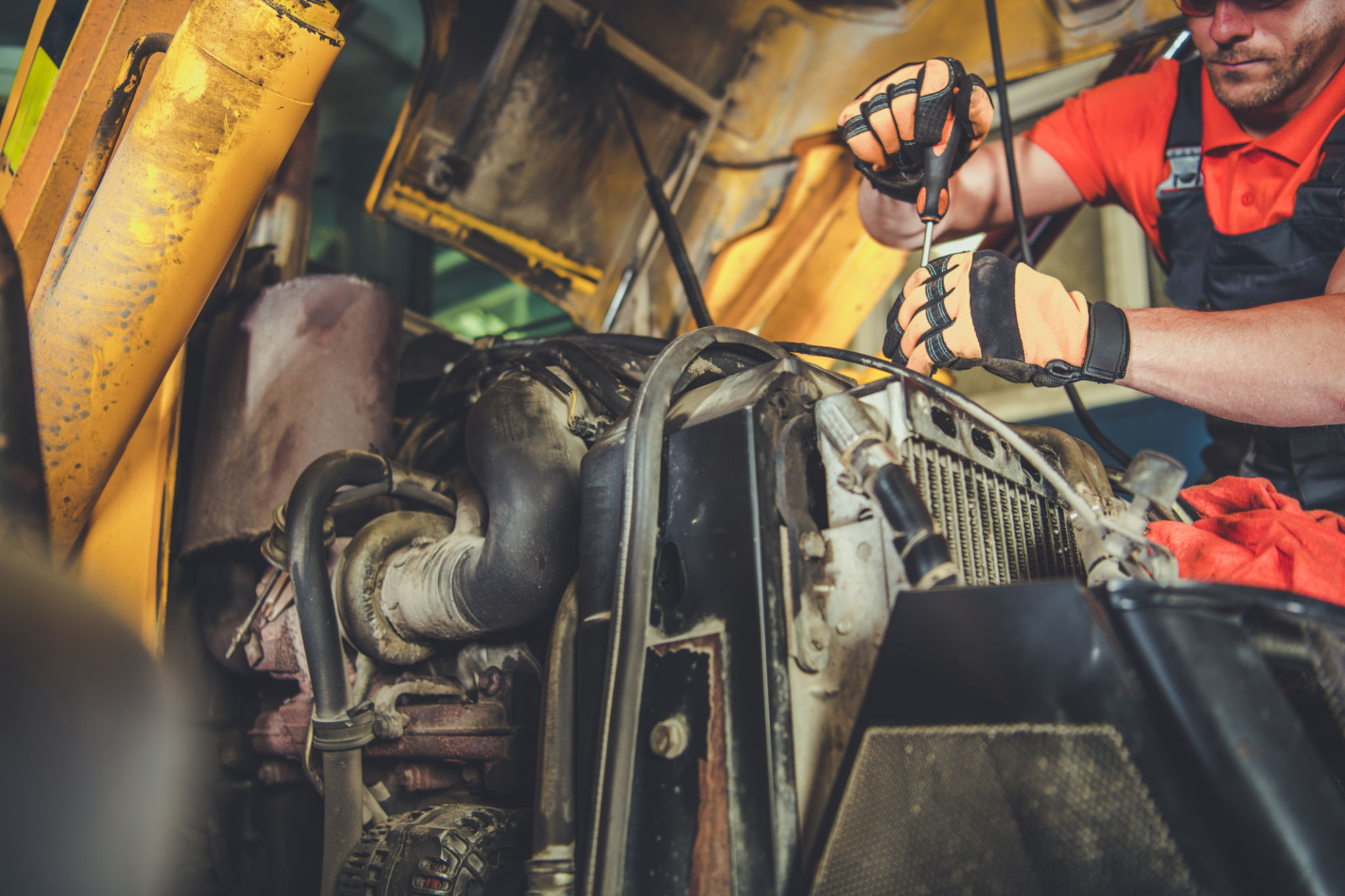Seasonal Maintenance Tips for Heavy Equipment in the Bay Area
Understanding the Importance of Seasonal Maintenance
Maintaining heavy equipment is crucial to ensuring operational efficiency and longevity. In the Bay Area, where weather conditions can vary significantly, understanding the seasonal demands on your machinery is essential. Regular maintenance helps in avoiding unexpected breakdowns and ensures safety for operators. With the right approach, you can extend the life of your equipment and improve its performance.
Seasonal changes can affect equipment in different ways. For instance, the wet winters in the Bay Area can lead to rust and corrosion if the equipment is not properly protected. During the dry and hot summer months, overheating can become a concern. By tailoring your maintenance routine to the season, you can address these issues effectively.

Preparing for Winter
Winter in the Bay Area brings colder temperatures and increased moisture, which can be challenging for heavy equipment. To prepare for these conditions, it's vital to conduct a thorough inspection of your machinery. Check for any signs of wear and tear that could be exacerbated by cold weather. Pay special attention to hydraulic hoses and seals, as they are prone to cracking in low temperatures.
Implementing rust prevention measures is also crucial. Applying a protective coating to metal surfaces can help prevent corrosion. Additionally, ensure that all fluids, including oil and coolant, are at optimal levels and suitable for lower temperatures. This helps in maintaining engine efficiency and preventing freezing.
Spring Maintenance Checklist
As winter transitions into spring, it's time to assess any damage that may have occurred during the colder months. Start by cleaning your equipment thoroughly to remove any accumulated grime and salt deposits from winter road treatments. This prevents long-term damage and ensures the equipment remains in top condition.

Inspect tires for any wear or damage that may have resulted from slick or icy conditions. Ensuring proper tire pressure and alignment is essential for safe operation. Additionally, replacing air filters and lubricating moving parts can enhance performance as temperatures rise.
Summer Heat Concerns
The Bay Area's summer heat can pose a different set of challenges for heavy equipment. Overheating becomes a real risk, making it crucial to ensure that cooling systems are functioning correctly. Check radiators and replace any worn-out parts to prevent overheating during operation.
Keep an eye on battery health as well, since high temperatures can cause them to degrade faster. Ensure that batteries are charged and connections are clean and secure. Regular checks on fluid levels, particularly engine oil and hydraulic fluids, are essential to prevent overheating and maintain efficiency.

Fall: Preparing for Cooler Weather
As fall arrives, it's time to prepare your equipment for the upcoming winter. Begin with a detailed inspection and service of the entire machine. Drain any water from fuel systems to prevent freezing during colder months. Consider switching to winter-grade fluids that perform better in low temperatures.
Test all electrical components to ensure they are functioning correctly. Pay special attention to lights and indicators, which are critical during shorter daylight hours and inclement weather conditions. By addressing these areas in advance, you can minimize downtime during winter operations.
The Role of Regular Inspections
Regardless of the season, regular inspections are a cornerstone of effective maintenance. Establish a routine that includes checking all crucial components like brakes, steering mechanisms, and safety devices. A proactive approach helps in identifying potential issues before they escalate into costly repairs.
Record-keeping is also an essential part of the maintenance process. Document all inspections, repairs, and part replacements diligently. This not only helps in planning future maintenance but also provides valuable insights into recurring issues that might need long-term solutions.

Conclusion: Staying Ahead with Proactive Maintenance
Seasonal maintenance is more than just a checklist—it's a strategic approach to managing heavy equipment efficiently throughout the year. By adapting your maintenance practices to the changing seasons in the Bay Area, you safeguard your investment and ensure consistent performance.
Being proactive about maintenance not only prevents costly breakdowns but also enhances safety for operators and extends the lifespan of your machinery. With these tips and practices, you can keep your heavy equipment in optimal condition no matter what seasonal challenges arise.